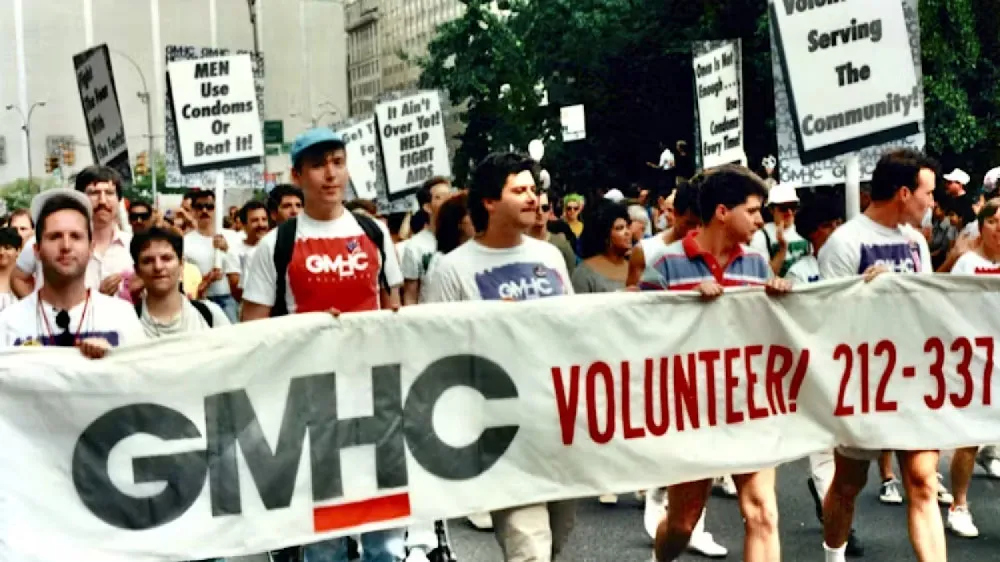May 11, 2011
Presbyterians Clear Way for Gay Clergy
Kilian Melloy READ TIME: 3 MIN.
After decades of debate, the Presbyterian Church (U.S.A.) on Tuesday struck down a barrier to ordaining gays, ratifying a proposal that removes the celibacy requirement for unmarried clergy, in the latest mainline Protestant move toward accepting gay relationships.
The change was endorsed last year by the Presbyterian national assembly, but required approval by a majority of the denomination's 173 presbyteries, or regional church bodies.
The Presbytery of the Twin Cities Area, based in Minneapolis and St. Paul, Minn., cast the deciding 87th vote Tuesday night. Sixty-two presbyteries have voted against the measure and balloting will continue, but the majority needed for ratification was secured in Minnesota.
"It's a thrilling day," said Sylvia Thorson-Smith, an elder at St. Mark's Presbyterian Church in Tucson, Ariz., whose family advocates for gays and lesbians in the church. She invited 40 people to her house for a party after the vote was announced. "I can't help but think of those who have worked and suffered and endured and hoped for this. Some have not lived to see it."
Differences over the Bible and homosexuality have split Protestant groups nationally and worldwide for years. Within the Presbyterian Church, about 100 of the 11,000 congregations had already broken away ahead of the vote, but a group of large theologically conservative congregations, which calls itself Fellowship, has decided to remain in the denomination for now.
Top Presbyterian executives issued a statement to the church acknowledging that "some will rejoice while others will weep," at the decision.
"However, as Presbyterians, we believe that the only way we will find God's will for the church is by seeking it together - worshipping, praying, thinking and serving alongside one another," the executives wrote.
The measure approved Tuesday eliminates language in the church constitution requiring that clergy live "in fidelity within the covenant of marriage between a man and a woman, or chastity in singleness." The new provision instead requires ministers to "submit joyfully to the Lordship of Jesus Christ in all aspects of life."
Each regional body will decide who it should ordain, and some districts are expected to continue to reject gay and lesbian candidates.
Highland Park Presbyterian Church in Dallas will send a letter to its nearly 5,000 members reaffirming the congregation's commitment to traditional marriage and celibacy for unmarried clergy. The church has formed a task force to study the impact of the new policy.
"While this change is deeply troubling, it does not change (Highland Park church)," the Highland Park senior pastor and elders wrote in the letter. "We have the freedom and the responsibility to continue upholding biblical standards for church officers."
The 2.1 million-member denomination, based in Louisville, Ky., is the latest mainline Protestant group to move toward accepting same-gender relationships.
In 2003, The Episcopal Church caused an uproar in the global Anglican fellowship by consecrating the first openly gay bishop, V. Gene Robinson of New Hampshire. The Evangelical Lutheran Church in America, the largest Lutheran group in the country, liberalized its policy toward gay clergy two years ago. The United Church of Christ started ordaining openly gay clergy in 1972, and more recently endorsed same-sex marriage.
The nation's largest mainline group, the United Methodist Church, which has just under 8 million U.S. members, retains its celibacy mandate for unmarried clergy.
In the Presbyterian Church, regional bodies had rejected similar amendments in three previous votes on ordaining gays since 1998. In this latest round of balloting, 19 presbyteries switched their vote in favor of ordaining openly gay and lesbian candidates for ministry.
Among the reasons cited by activists on all sides of the issue: the change in broader American society toward accepting same-sex relationships, weariness of the debate, and the departure of some conservative churches from presbyteries, which changed the balance of votes in some regions.
The new policy will take effect on July 10, after all presbyteries complete their voting.
The much smaller Presbyterian Church in America, a separate denomination, bars ordination for women and openly gay clergy candidates.
___
Associated Press writer Tara Bannow in Minneapolis contributed to this report.
Kilian Melloy serves as EDGE Media Network's Associate Arts Editor and Staff Contributor. His professional memberships include the National Lesbian & Gay Journalists Association, the Boston Online Film Critics Association, The Gay and Lesbian Entertainment Critics Association, and the Boston Theater Critics Association's Elliot Norton Awards Committee.


